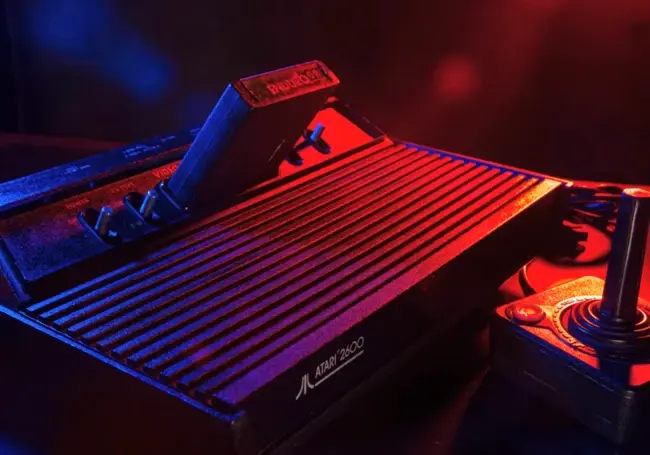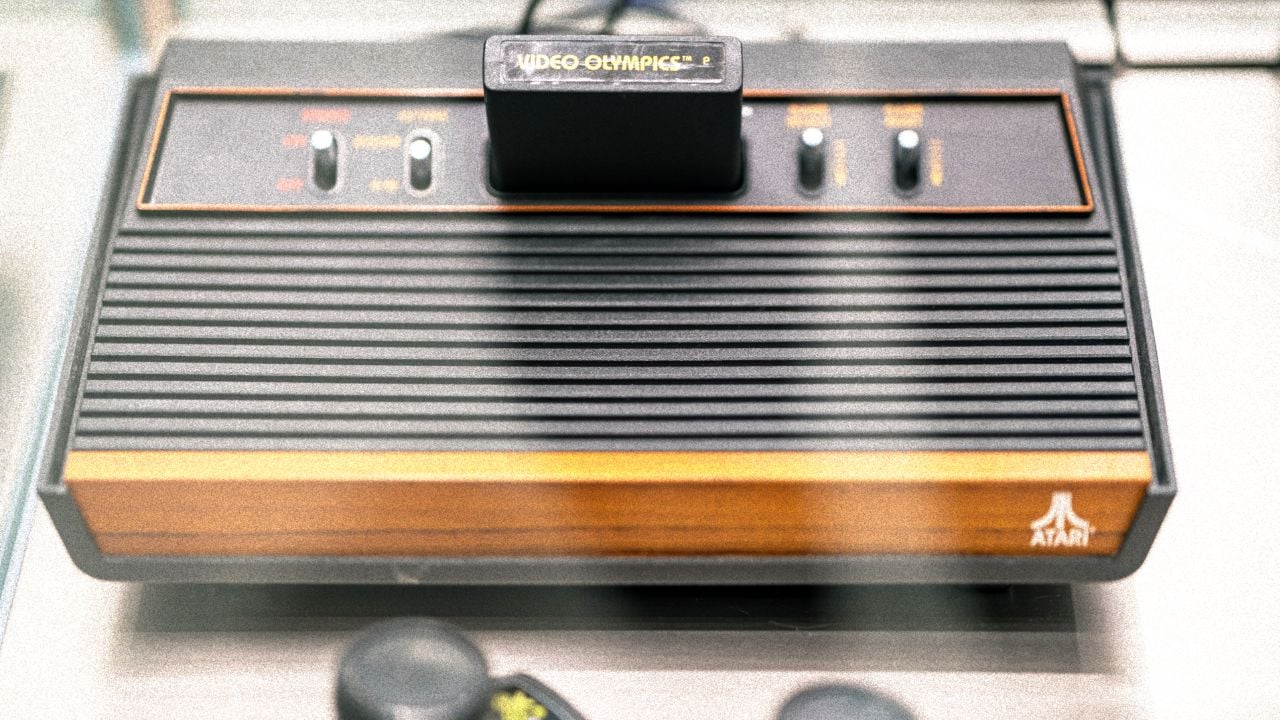From Pong to Pac-Man, Atari wasn't just a company, it defined the video game industry and culture of the 80s.
Today, the name might only ring a bell for Gen Z as a lyric from a CeeLo Green song, so just how did this tech giant fall so quickly?
In this article we’ll dive deep into what happened to Atari, the video game crash and if it’s still in business.

What is Atari?
Atari is a video game brand best known for the console ‘Atari 2600.’ Launched in September 1977, the Atari 2600 was one of the first successful home consoles to use microprocessor-based hardware and swappable game cartridges, a format that became the industry standard.
Atari started its meteoric rise in arcades. Founded in 1972 by Nolan Bushnell and Ted Dabney, their breakout hit, Pong, a simple table tennis-inspired game, became an instant global phenomenon.
Atari capitalized on this success quickly releasing more popular games including Asteroids, Centipede, and Missile Command. These games not only brought in revenue but also defined early video game aesthetics and gameplay mechanics.
By 1977 the games were brought out of local arcades and into people's homes with the release of the Atari 2600 console.
The console was incredibly successful, selling over 30 million units worldwide. It popularized video games for home audiences and paved the way for future consoles. The best-selling video game for the Atari console was Pac-Man, followed by Space Invaders.

What Happened to Atari?
The ‘video game crash of 1983’, also known as the ‘Atari shock’, marked the rapid decline of the US video game industry, including a $500 million loss for Atari.
The success of Atari in the late 70s led to dozens of copycat companies, flooding the market with consoles of varying quality. Consumers became overwhelmed by the choices and unsure of which system to invest in.
Many companies rushed out low-quality games to capitalize on the booming market. These games were often poorly designed, buggy, and offered little innovation. This led to frustration and disappointment among gamers, damaging the industry's reputation.
As competition intensified, companies engaged in price wars both in games and consoles. This further confused consumers and led to lower-quality components being used to maintain profit margins.
Read: What Happened to the Metaverse? How Zuck's VR Dream Died
What Caused Atari to Fail?
Believe it or not, Steven Spielberg's ET is widely considered to have been the final nail in Atari's coffin. Facing immense pressure to capitalize on the movie's success, Atari rushed game development to meet a tight release deadline for the Christmas season. This resulted in a poorly designed game with repetitive gameplay and glitches.
To make matters worse, Atari massively overproduced E.T. cartridges, anticipating high demand. When the game flopped, they were stuck with a huge surplus and ended up burying millions of unsold E.T. cartridges in a New Mexico landfill.
As Atari grappled with massive profit losses they changed leadership multiple times, all of which were unable to tackle mounting issues. In 1984 Atari's consumer electronics and home computer divisions (including video games) were sold to Jack Tramiel's Tramel Technology for $240 million. Atari's parent company, Warner Communications, initially retained the arcade division (Atari Games) before selling it to Namco in 1985, and sold another Atari division (Ataritel) to Mitsubishi.
While Atari struggled to find its footing, competitor Nintendo managed to recapture imaginations with the launch of their Nintendo Entertainment System (NES) in 1985. The NES, led by iconic characters like Mario and accompanying high-quality games, reignited consumer interest and paved the way for a new era in the video game industry.
Atari's early success paved the way for home consoles, but their missteps alongside a rapidly evolving market opened the door for Nintendo to capitalize on the industry's potential with a renewed focus on quality and innovation
As the industry evolved around it, production of the Atari 2600 finally ceased in 1992, with over 30 million units sold.
How Much is an Atari Worth?
An Atari console can be worth from $20 to $200, depending on the condition.
A used console in working order might fetch $20-$50, while a never used, still in box version in excellent condition could be worth $100-$200. Rare models and variations can fetch an even higher price with specialist collectors.
If you’re looking to sell your own Atari console it's best to research similar listings on online marketplaces, taking into account the condition, any included accessories, and functionality.
Is Atari Still in Business?
Atari is still in business. The brand is now owned by a French company called Atari SA (formerly Infogrames). They now primarily focus on mobile games, PC releases, and leveraging their legacy by licensing their classic properties like Pac-Man and Asteroids.
Atari do not manufacture their own consoles anymore.
Though the Atari may no longer be the go-to console for the new generation of gamers, the company's impact is undeniable and their innovation shaped the video game industry. Atari’s legacy lives on, both directly in their licensing of their classic properties like Pac-Man as well as in the foundations they laid for the way consoles and games are designed to this day.




Comments ( 0 )